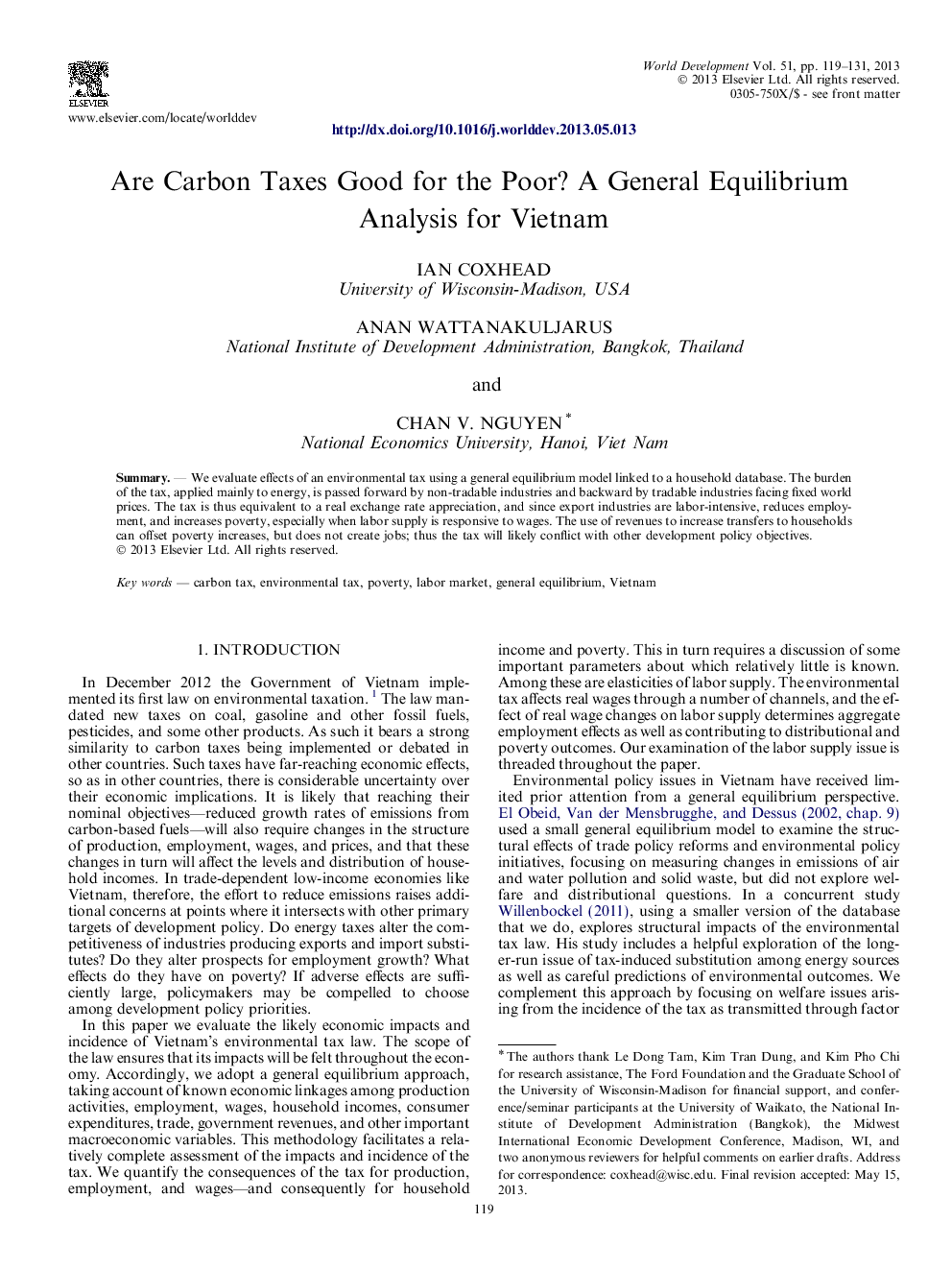| Article ID | Journal | Published Year | Pages | File Type |
|---|---|---|---|---|
| 7395387 | World Development | 2013 | 13 Pages |
Abstract
We evaluate effects of an environmental tax using a general equilibrium model linked to a household database. The burden of the tax, applied mainly to energy, is passed forward by non-tradable industries and backward by tradable industries facing fixed world prices. The tax is thus equivalent to a real exchange rate appreciation, and since export industries are labor-intensive, reduces employment, and increases poverty, especially when labor supply is responsive to wages. The use of revenues to increase transfers to households can offset poverty increases, but does not create jobs; thus the tax will likely conflict with other development policy objectives.
Related Topics
Social Sciences and Humanities
Economics, Econometrics and Finance
Economics and Econometrics
Authors
Ian Coxhead, Anan Wattanakuljarus, Chan V. Nguyen,
